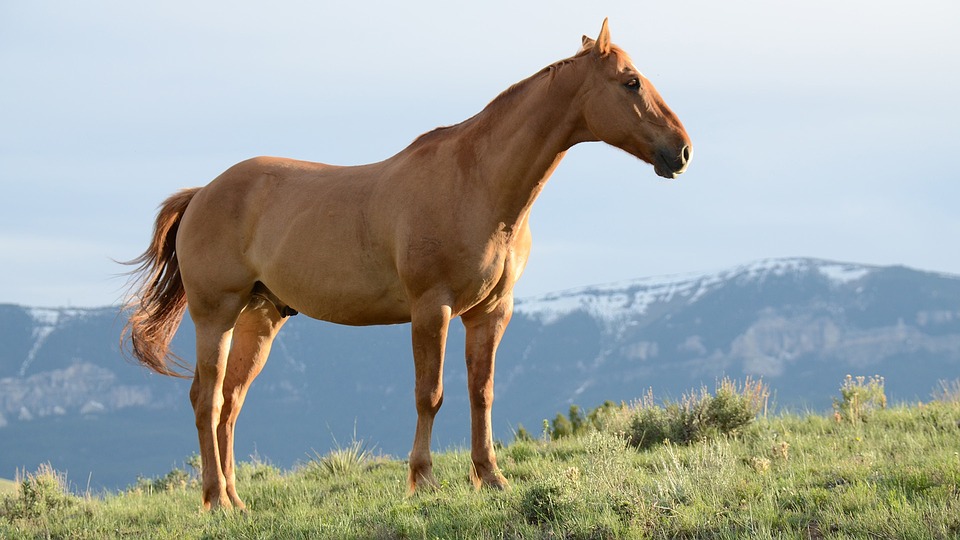This comprehensive guide explores the question of whether rabbits can safely consume green onions, examining the potential risks and benefits. We'll delve into the nutritional composition of green onions, their impact on rabbit health, and provide clear guidelines on safe consumption.
Part 1: The Nutritional Profile of Green Onions

1.1. A Rich Source of Vitamins and Minerals
Green onions are a veritable treasure trove of vitamins and minerals, offering a range of essential nutrients. They boast high levels of:
- Vitamin K: Crucial for blood clotting and bone health, ensuring proper wound healing and strong skeletal structures.
- Vitamin C: A powerful antioxidant that supports the immune system, bolstering the rabbit's natural defences against disease.
- Folate: Essential for cell growth and development, playing a vital role in healthy reproduction and maintaining overall cell function.
- Potassium: A key electrolyte that helps regulate fluid balance and blood pressure, crucial for maintaining cardiovascular health.
- Iron: Essential for oxygen transport throughout the body, contributing to red blood cell formation and preventing anaemia.
- Other Minerals: Green onions also contain significant amounts of manganese, copper, and dietary fibre, further contributing to overall health.
1.2. Phytochemicals and Antioxidants for Human Health
Green onions contain various phytochemicals, including flavonoids and quercetin, which possess antioxidant properties. These compounds offer potential benefits for human health, such as protecting against oxidative stress and inflammation, but their impact on rabbits is less clear.
Part 2: The Hidden Danger: Allium Compounds in Green Onions

2.1. The Toxicity of Thiosulfinates
Green onions belong to the Allium genus, which includes onions, garlic, and chives. These plants contain compounds known as thiosulfinates, specifically a compound called N-propyl disulfide, which is highly toxic to rabbits.
2.2. The Mechanism of Toxicity
Thiosulfinates in green onions disrupt red blood cell function in rabbits, causing a condition called haemolytic anaemia. This occurs because these compounds damage the red blood cells' ability to carry oxygen, leading to a decrease in oxygen levels throughout the body.
2.3. The Severity of Onion Toxicity
The severity of onion toxicity in rabbits depends on several factors, including:
- Quantity consumed: Larger amounts of green onions pose a greater risk, with even small quantities potentially harmful.
- Rabbit size: Smaller rabbits are more susceptible to the effects of toxicity due to their lower body weight.
- Individual sensitivity: Some rabbits may be more sensitive to allium compounds than others, with individual variations in metabolic pathways affecting their susceptibility.
Part 3: Understanding the Symptoms of Onion Toxicity
Recognising the signs of onion toxicity is crucial for prompt intervention. Symptoms can vary depending on the severity of exposure, but common signs include:
- Gastrointestinal upset: Vomiting, diarrhoea, abdominal pain, and loss of appetite are early indicators of toxicity.
- Haemolytic anaemia: Pale gums, weakness, lethargy, and increased respiratory rate are classic signs of red blood cell damage.
- Respiratory distress: Difficulty breathing, coughing, and panting are indicative of oxygen deprivation due to anaemia.
- Kidney damage: Urine abnormalities, such as increased frequency or blood in the urine, can signal kidney dysfunction caused by the toxic compounds.
3.1. The Importance of Early Detection
Early detection of onion toxicity is crucial. Prompt veterinary intervention can significantly improve the rabbit's chances of recovery.
Part 4: The Limited Nutritional Value for Rabbits
4.1. Specialized Digestive System
Rabbits have a specialized digestive system adapted for a high-fibre diet consisting mainly of hay and fresh greens. Their digestive tract is not equipped to efficiently break down the compounds found in green onions.
4.2. Lack of Essential Nutrients
While green onions offer some vitamins and minerals, they lack the crucial nutrients that form the foundation of a healthy rabbit diet. Hay provides essential fibre for digestion, while fresh greens offer vitamins and minerals that rabbits require.
4.3. Potential for Digestive Upset
Even small amounts of green onions can cause digestive upset in rabbits due to their inability to process the compounds effectively. This can lead to diarrhoea, gas, and other digestive issues.
Part 5: Safe Alternatives to Green Onions for Rabbits
5.1. A Bountiful Garden of Safe Greens
Rabbits can safely enjoy a wide variety of leafy greens, providing them with essential vitamins and minerals. Some safe options include:
- Lettuce (in moderation): Choose romaine lettuce or other varieties known for their lower oxalate content, which can be problematic in large quantities.
- Spinach (in moderation): Limit spinach due to its high oxalate content, which can bind calcium and interfere with its absorption.
- Kale: A nutritious choice, but feed in moderation as it is high in calcium and can lead to urinary issues if consumed excessively.
- Parsley: An excellent source of vitamin C, parsley can be a refreshing addition to a rabbit's diet.
- Cilantro: A fragrant and refreshing herb, cilantro adds a unique flavour to rabbit meals.
- Dandelion Greens: A nutritional powerhouse packed with vitamins, minerals, and antioxidants, dandelion greens are a healthy treat for rabbits.
5.2. Other Suitable Vegetables for a Balanced Diet
In addition to leafy greens, rabbits can safely enjoy a variety of vegetables:
- Bell peppers: A good source of vitamin C and antioxidants, bell peppers can be a tasty treat.
- Carrots (in moderation): Provide beta-carotene, a precursor to vitamin A, but limit due to their high sugar content.
- Broccoli (in moderation): A nutritious vegetable, but feed in limited amounts due to its high fibre content, which can be overwhelming for some rabbits.
- Cucumber: A refreshing and low-calorie option, cucumber is a safe and enjoyable snack for rabbits.
Part 6: The Importance of a Balanced Diet
6.1. Hay: The Foundation of a Rabbit's Diet
Hay should form the majority of a rabbit's diet, providing essential fibre for digestive health and preventing dental problems.
6.2. Fresh Greens: A Source of Essential Nutrients
Fresh greens supplement hay, offering a variety of vitamins and minerals crucial for overall well-being.
6.3. Pellets: Providing Essential Nutrients
Rabbit pellets are a supplemental food source that provides essential nutrients not readily available in hay and greens.
6.4. Treats: A Limited Addition
Treats should be offered in moderation to prevent weight gain and dietary imbalances.
Part 7: Strict Guidelines for Feeding Green Onions to Rabbits
7.1. Avoid Green Onions Completely: A Precautionary Approach
Due to the potential for toxicity, it is strongly recommended to avoid feeding green onions to rabbits altogether. Even small amounts can be harmful, so err on the side of caution.
7.2. Never Offer Raw or Cooked Green Onions
Whether raw or cooked, green onions pose a danger to rabbits. Cooking does not eliminate the toxic compounds, so even cooked green onions are unsafe.
7.3. Avoid Products Containing Green Onions
Be cautious about rabbit-specific treats or commercial food products that may contain green onions or onion powder as ingredients.
Part 8: What to Do if Your Rabbit Eats Green Onions
8.1. Immediate Action is Crucial
If you suspect your rabbit has eaten green onions, contact your veterinarian immediately. Time is of the essence in treating potential toxicity.
8.2. Monitoring for Symptoms: A Vigilant Approach
Closely monitor your rabbit for any signs of toxicity, including those listed in Section 3. Be attentive to changes in behaviour, appearance, or bodily functions.
8.3. Veterinary Treatment: Seeking Professional Care
Your veterinarian may recommend supportive care, such as intravenous fluids to combat dehydration and medications to manage symptoms. They may also perform blood tests to assess the severity of anaemia and monitor kidney function.
Part 9: FAQs: Addressing Common Concerns
9.1. Can rabbits eat green onion tops?
No, rabbits should not eat green onion tops as they contain the same toxic compounds as the bulbs.
9.2. Are green onion stems safe for rabbits?
No, the stems of green onions also contain allium compounds and are unsafe for rabbits.
9.3. Is green onion powder safe for rabbits?
Green onion powder is not safe for rabbits. Even small amounts can be toxic.
9.4. Can I give my rabbit cooked green onions?
No, cooking does not remove the toxic compounds in green onions, so they remain unsafe for rabbits.
9.5. Are green onions safe for other small pets?
Green onions are toxic to other small pets, such as guinea pigs, hamsters, and rats, so they should be avoided.
9.6. What are some safe snacks for rabbits?
Safe and healthy treats for rabbits include:
- Fresh herbs: Parsley, cilantro, basil, and mint are all safe and enjoyable for rabbits.
- Dandelion greens: A good source of vitamins and minerals, dandelion greens are a nutritional treat.
- Timothy hay: The foundation of a rabbit's diet, Timothy hay provides essential fibre.
- Rabbit-specific pellets: Provide essential nutrients not readily available in hay and greens.
- Small pieces of fresh fruit (in moderation): Apples, bananas, and strawberries can be enjoyed occasionally.
9.7. What are some signs that my rabbit is not eating a balanced diet?
Signs of an unbalanced diet include:
- Weight loss or gain: Significant changes in weight can indicate dietary imbalances.
- Dull coat: A dull or matted coat can signal nutrient deficiencies.
- Dental problems: Overgrown teeth can be a sign of insufficient fibre intake.
- Digestive issues: Diarrhoea, constipation, or gas can be caused by a diet lacking in fibre or containing excessive amounts of treats.
9.8. How can I ensure my rabbit is getting enough fibre?
Provide unlimited access to Timothy hay, which should form the majority of your rabbit's diet. You can also offer other hay varieties, such as oat hay and meadow hay, to add variety.
9.9. Can I give my rabbit green onion-flavoured treats?
It is best to avoid any treats that contain green onions or onion powder, even if they are marketed for rabbits.
9.10. What are some common mistakes people make when feeding rabbits?
Common mistakes include:
- Overfeeding treats: Treats should be given in moderation to prevent weight gain and dietary imbalances.
- Offering unsuitable foods: Avoid foods that are toxic to rabbits, such as green onions, chocolate, and avocado.
- Not providing enough hay: Hay should form the majority of a rabbit's diet.
- Feeding a diet lacking in variety: A balanced diet should include a variety of fresh greens and hay.
Everyone is watching
-

Do Rabbits Lay Eggs? (The Surprising Truth)
OTHER TYPES OF PETSThis article will unravel the common misconception that rabbits lay eggs, exploring the fascinating world of r...
-

Can Rabbits Eat Grapes? A Guide to Safe Rabbit Treats
OTHER TYPES OF PETSThis comprehensive guide will explore the safety and suitability of grapes for rabbits, providing detailed inf...
-

What's a Group of Rabbits Called? (A Comprehensive Guide)
OTHER TYPES OF PETSThis article delves into the fascinating world of rabbits, exploring the various terms used to describe a grou...
-

Predators That Hunt Rabbits: A Guide to Natural Enemies
OTHER TYPES OF PETSI've always been fascinated by the circle of life, that delicate dance between predator and prey. Growing up ...
-

Are Rabbits Nocturnal Animals?
OTHER TYPES OF PETSThe question of whether rabbits are nocturnal animals is a fascinating one, with a surprisingly complex answer...
